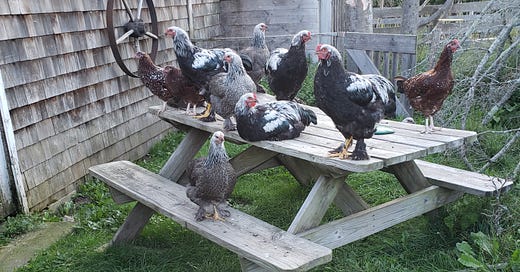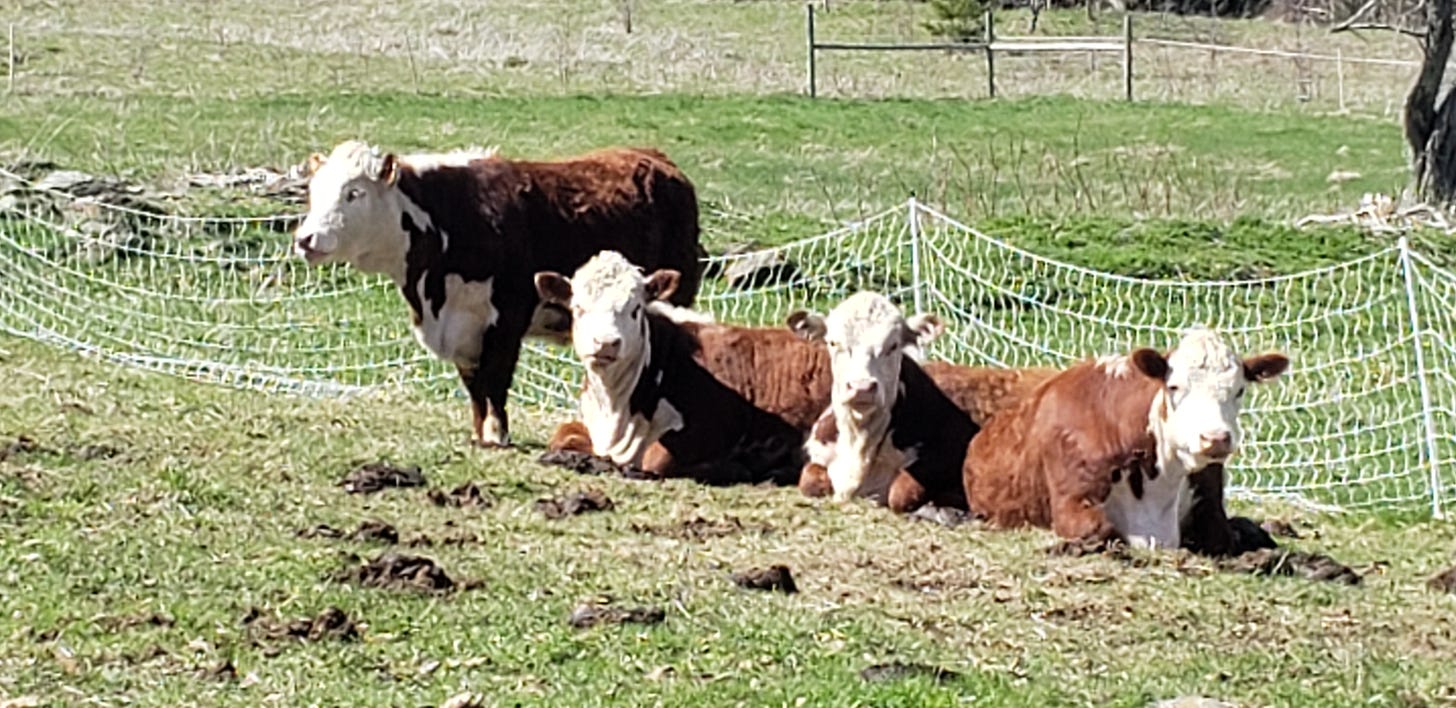Covid has revealed numerous food distribution vulnerabilities unaddressed by the 2016 [Republican] platform, which also does not present a plan for the steady spikes in food prices that will be the new normal. Layers of price-inflated fossil fuels and (fossil-fuel-based) fertilizers, and other agriculture inputs, will compound inflationary impacts in foods. Americans could be suffering severe economic hardship, malnutrition, and even starvation if and when food costs comprise 20% percent or 30% percent of their monthly budgets instead of the 10% percent to which they are accustomed. There is a very real risk of a jump to 50% percent or more of household budgets for basic groceries, and even widespread food shortages—aggravated by hoarding and theft.
The Republican Party must steer its policies with foresight toward responding to these very real problems, rather than wait until 2024 to dabble with another quixotic, disconnected, faux environmental policy prescription. America’s conservatives must stake their political futures with working-class rural Americans, not corporate elites and billionaires. Regenerative agricultural policies, reduced regulation, and support for rural farming communities and family farms offer an agricultural policy pathway to economic, human, and environmental health, but also political success for conservatives. These proposals affirm traditional conservative values that include supporting small businesses and their economic importance for America. The widely dispersed smallholdings favored by Jefferson and the distributists remain the strongest bulwark against industrial domination and government totalitarianism. This foundation resists the vagaries of both capitalism and communism. But more, it rests on traditionally espoused conservative values. Republicans must return to that legacy from which they have strayed.
The past century witnessed a relentless tightening of government regulatory control of nearly every morsel of food grown locally, while rapidly and recklessly expanding access to dubiously labeled foreign-sourced foods that often lack thorough regulatory oversight. Family farms have all but vanished and local landscapes grown back in scrub brush and woods, or worse—“development.” And the citizenry is being made ill by it all.
Republicans must get food and sustainable agriculture right. Prices of basic foods have already risen much faster than base inflation rates, and this will worsen as the Biden post-COVID spending infusions dilute the money supply. It is likely the government will issue more debt-fueled “relief,” but this will instead fuel yet more inflation. There may well be food riots in American streets such as have not been seen since revolutionary times, when more than thirty local food riots occurred from 1775 to 1779, fueling the American Revolution.
Restoring rural communities begins with subsidies for small-scale and regenerative farming practices instead of for monocultures and Chinese solar panels. When small families can afford to live in rural areas—and wish to—businesses that serve farmers and also these rural consumers will also return to rural towns; schools will grow in enrollment, and rural communities will thrive. The family farm is the foundation of soil stewardship as well as community, and that merits saving.
A local food supply is also the best defense against tyranny. That was as true for the American colonists against the British Crown as it is for today’s patriots. And once again, it’s a win-win. Trustworthy government should encourage self-reliance and food security for its populace, not compel servitude to corporate hegemony.
Eliminating subsidies over time for large-scale, soil-wrecking monoculture production is a necessity, along with paring back overly burdensome agriculture regulations. Targeted credits and subsidies will profoundly motivate Americans to consider an economically viable, healthy living in the diverse and beautiful landscapes that crave human nurturing and regeneration.
Humans rebel against being converted to a CAFO life. Just like cows, they are happier, healthier, and more balanced with the ecosystem only when they are out on the land. The policies proposed will do more than just restore fair opportunities for small-scale farmers: they will help all Americans weather future storms of inflation or food scarcity, as growing one’s own food is the strongest possible hedge fund against a weak currency.
There are a number of potential food supply crises that face America, linked to soil erosion and water supplies, but also to currency strength, fossil fuel market volatility, world war, and other potential threats. A land-based (agrarian) rural population is more resilient to such blows, and serves as a resource for urban as well as rural Americans.
Conservatives and liberals must unite to support small farms and local food production.
There is no need to embrace global warming or even carbon dioxide as culprit for conservatives to see the many benefits that follow. Democrats can fight the climate change battle separately, while concurring in the many benefits proffered by a Republican policy initiative favoring regenerative practices and local agriculture. Should the nation quickly achieve consensus on chemical reduction and regenerative agriculture, the benefits would soon prove themselves: rural economic growth; healthier food supplies, and thus healthier people and less-costly care; improved soil retention and healthier soils; cleaner water and reduced stress on aquifers; reduced overall government spending on agriculture subsidies; reduced fossil fuel, and fertilizer, and other chemical inputs; and reduced dependency on foreign food, fuels, fertilizers, and other agricultural inputs. Additionally, carbon dioxide in the atmosphere could be measurably reduced (off-setting the surge of its production via solar panel and EV manufacturing!).
The political import of these proposals is to unite Americans strongly along policy priorities, on the eve of a growing crisis of sustained food-price inflation and in the midst of a highly polarized political climate. This makes the local agriculture urgent, but no less political. More people could die in a month in America from an abrupt interruption in commerce than have succumbed to Covid through the entire pandemic.







Thanks for that essay from your book. Definitely purchasing it. Not that I think the Republican Party can ever realize the importance of small regenerative farms. I personally think the uniparty stronghold on DC, as well as the totally corrupted, bought off, corporate controlled agencies are beyond reform. Reform will come from the bottom up, from we the people standing up to all forms of tyranny, by strengthening each other to not comply with tyranny. To not participate is digital currencies etc. to demand a commodity and gold back currency ( note this is what the BRICS ) is doing. The US started to fail when we got off the gold standard, and then we used the petro dollar as a weapon and punished all those who refused or tried to veer away from using it ( Iraq, Venezuela, and many other nations ). We used our military might to force regime changes. … the list of IS atrocities worldwide is long. But you are correct that small agriculture is the backbone of a resilient and moral society. People need to rediscover this and also rediscover the Good Book.
"A local food supply is also the best defense against tyranny." Someone is about to go off the deep end...